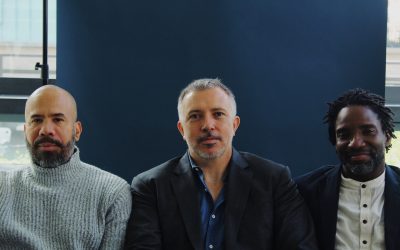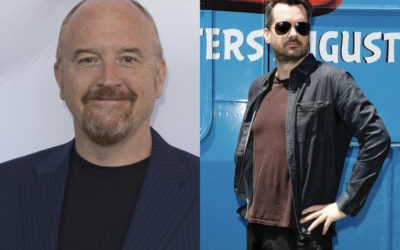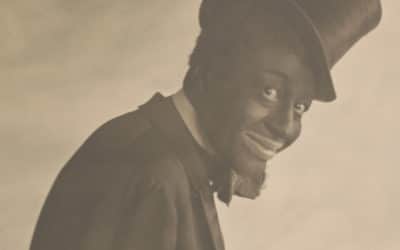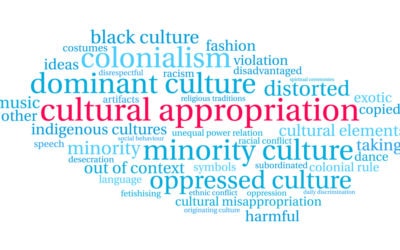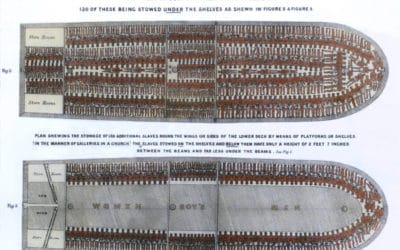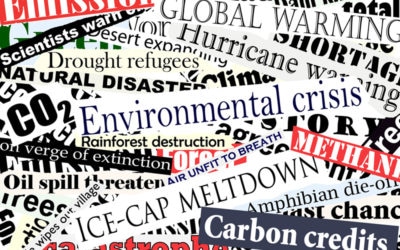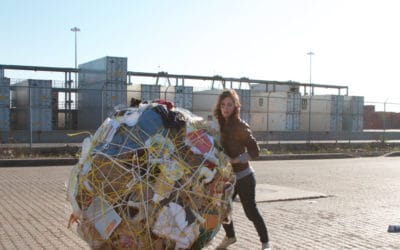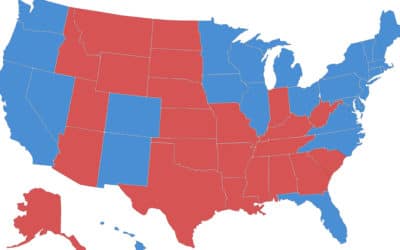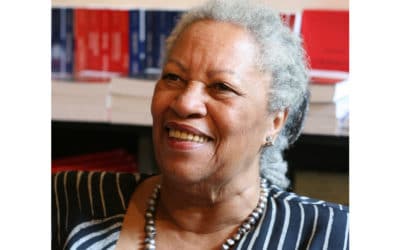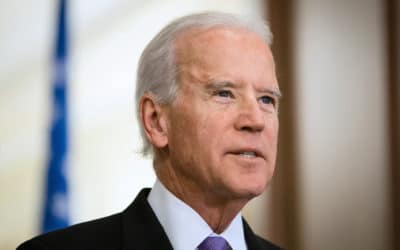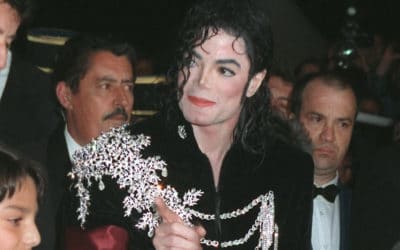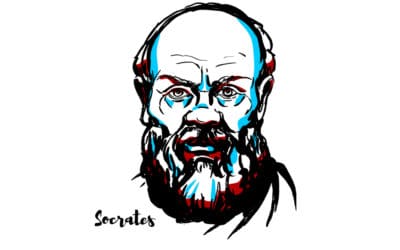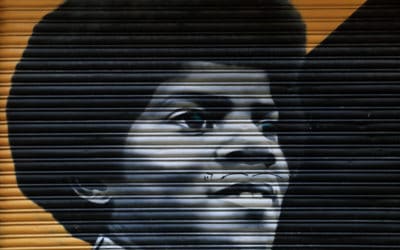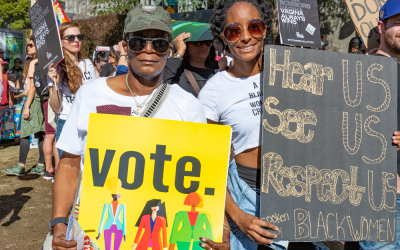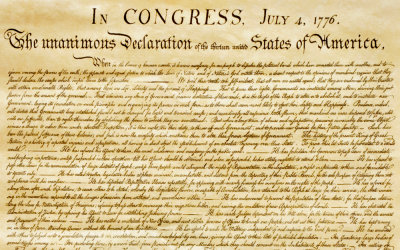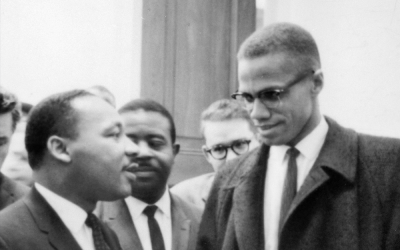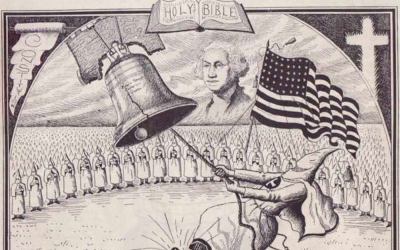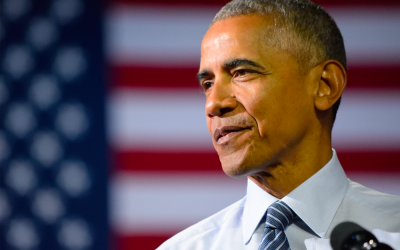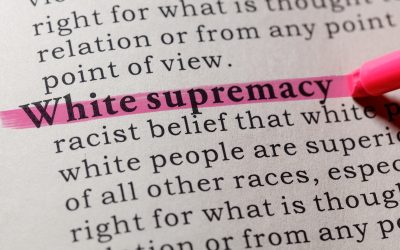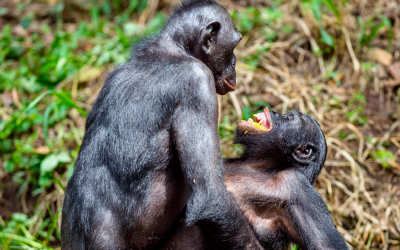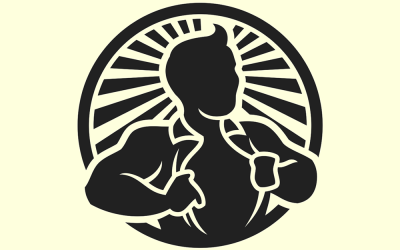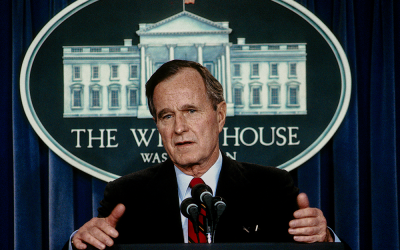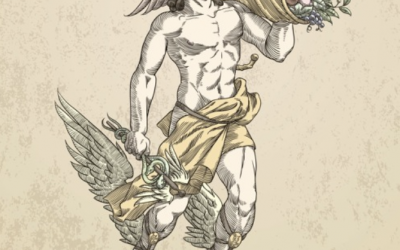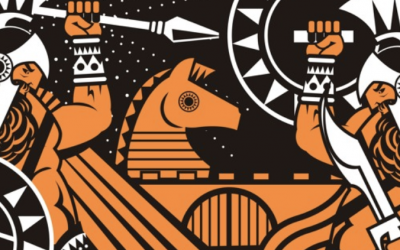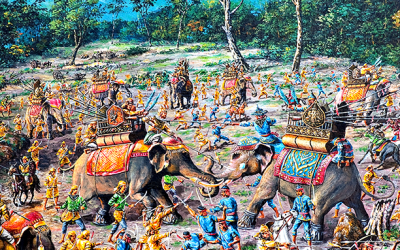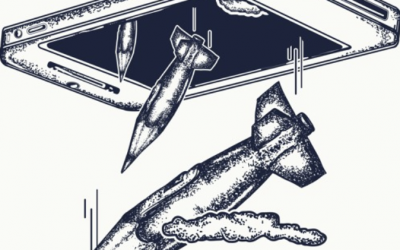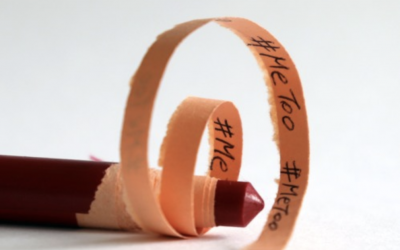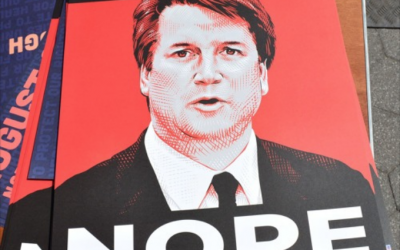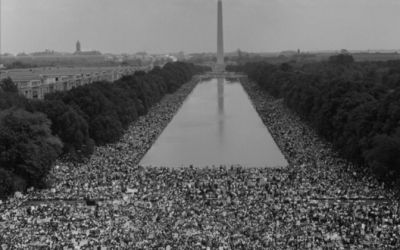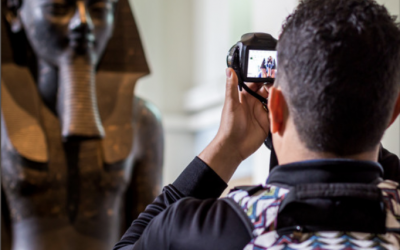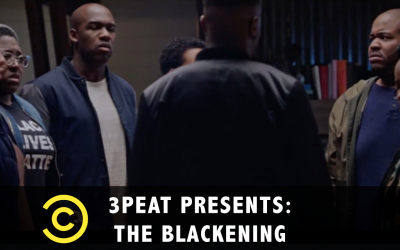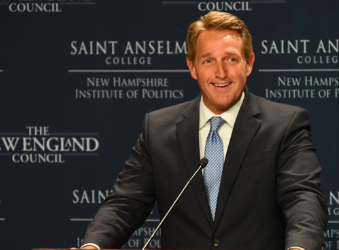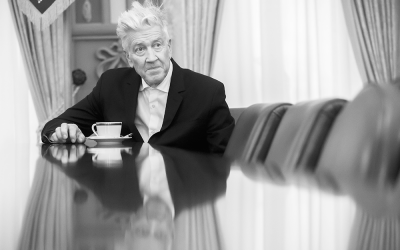Other Episodes
Comedy: Final Thoughts
What can you learn about a culture through comedy? What can you learn about people, and maybe more importantly, what can’t you learn about them through comedy? The hosts agree it’s time to stop canceling people for trying to be funny.
Episode 0101 – Comedy: Patrice O’Neal, Laughing Because It Hurts
Patrice O’Neal died in 2011, but his comedy is still hot. Stories that turn a bitter reality into laughter is this week’s subject. Should there be a limit on what comedians can say for a joke?
100th Episode
The hosts reflect on the last 100 episodes. What have the learned about each other, and about the issues they’ve discussed?
Comedy: Maria Bamford, How to Maintain Mental Health
The cliché goes that “laughter is the best medicine,” but the idea’s been around for thousands of years, so it’s probably best to call it “wisdom.” How can comedy help us cope with trauma?
Episode 0098 – Comedy: Offensive Comedy and Its Virtues
There’s laughing at yourself, and then there’s laughing at others. While the former is virtuous the latter is indispensable to group cohesion. In this episode the hosts talk about Jim Jefferies and Louis C.K. What are the limits of comedy?
Humor: What’s so funny?
The hosts take a personal look at what they find funny and why. Fair warning, political sensitivities aren’t off-limits.
1619: What Troubles, What Remains?
Even though the country’s racist history still troubles the present, there are reasons to look up. What can we take away from @NYTimes 1619 project?
1619: Medical Apartheid
The history of racism in medical care is not surprising, but the impact it continues to have on contemporary medical treatments is shocking. How do unscientific racial biases continue to distort evidence based medicine?
1619: Food, Sugar, and Race
The hosts talk about the history of food production in the United States and its connections to poverty, race, and slavery. How is the legacy of slavery connected to the contemporary obesity epidemic? Listen and find out.
1619: Music, Blackface, and Performing Freedom
The hosts discuss the history of “performing blackness” in music, as well as other forms of media. What does it mean to “co-opt” another culture’s music? What’s fair and what’s foul in artistic expression?
1619: Music as Cultural Appropriation
The legacy of slavery is long, but should the criticism of it extend to musical appropriation? What exactly is musical appropriation, and what can Warren G’s Regulate teach us about it?
1619: Beyond The New York Times Project
The hosts, along with new contributor Sarah Bond, discuss their impressions of the 1619 project. Does it go far enough in reckoning with our past?
Climate Change: What We’ve Learned
The podcast welcomes a new contributor, Sarah Bond, PhD, and the hosts reflect on their climate change discussion.
Climate Change: Art as Social Practice
Contemplating the consequences of climate change is not only the purview of scientists. Artists are also helping to imagine the contours of a warming planet, as well as re-imagine what possibilities might emerge from this global crisis.
Climate Change: Revisiting “An Inconvenient Truth”
How well does “An Inconvenient Truth” (2006) hold up after ten plus years of scientific research and political upheaval? The hosts engage not only with the film and its nominal protagonist, Al Gore, but the effectiveness of film as advocacy.
Climate Change: Material Memory
Memory isn’t something that lives only in our minds. Memory lives in objects–in museums, and scrap books, and archives. How can archives help us make sense of climate change? What do we choose to preserve and why?
Climate Change: Pop Culture Takes on the Planet
The hosts explore what pop cultural references to climate change can and can’t accomplish. Does pop culture improve our environmental awareness, or simply point back at itself recursively?
Climate Change: Who Will Suffer and Who Will Profit
The effects of climate change will not be evenly distributed. Some landscapes, cultures, and peoples will suffer more than others. And some people will profit from that suffering. Who has a responsibility to deal with that suffering?
Toni Morrison: Her Life in Words
The hosts take a break from their long form discussion about climate change to discuss Toni Morrison, who died on August 5th. “We die,” Morrison said in her 1993 Nobel Prize acceptance. “That may be the meaning of life. But we do language,” she added. “That may be the measure of our lives.”
Climate Change: Population Displacement and Poverty
How can we think about climate change in new ways, so that we might better understand what’s at stake? If we look at the history of demographic displacement then the future of climate change comes into stark relief. And that future is darker for some than for others.
Climate Change: It’s the End of the World as We Know It and I Feel…
The hosts discuss climate change. It’s in the news all the time, but how we talk about climate change is as important as identifying its parameters and potential consequences. How are we talking about our precarious place in the world?
(r)omance: Alternative Lifestyles
How do alternative lifestyles effect historically heteronormative notions of “romance?” The hosts discuss the ways in which romance has changed in response to the mainstreaming of LGTBQ interests, and how LGTBQ interests have been shaped by mainstream romance.
(r)omance: episodic or epic
We often talk about our lives as if it is one long running story, from cradle to grave. We do the same in our romantic lives, from young and fantastic to mature and sober. But is that true? How much do we actually learn from romance?
(r)omance: Are you difficult?
What makes someone “difficult” in romantic relationships? Putting themselves under the microscope, the hosts explore their own shortcomings and wonder how difficult they are to love.
(r)omance: What Is It?
Romance–with a lowercase “r”–has been a preoccupation in the West since the 17th century. But it’s rarely discussed with any seriousness outside of literature or without pop cultural clichés. The hosts aim to change that.
Donald Trump: Bring the System Down and What?
The hosts’ extend their diagnoses of the intellectual misanthropy that has helped make Trump’s populism palatable, by working through the arguments for civility in the public sphere.
Donald Trump: The Foucauldian President
The election of Donald Trump in 2016 broke the mold of the modern American President. Countless factors undoubtedly contributed to his election, but one that is seldom discussed is Trump’s compatibility with the critical intellectual fatalism common in continental philosophy.
Donald Trump: Media Responsibility
In a democracy the press serves a vital function–the dissemination of facts. Facts are slippery, but their faithful pursuit strengthens our national character. What has the election of Donald Trump revealed about fact based media in America?
Donald Trump: Change Agent
Cultural progress requires change, but that change isn’t always positive for its agents. For many years progressives ignored the cost of progress, but that bill came due in November, 2016. The 2016 election is a clear signal the world is changing, but what is it changing into?
2020 Democrats: How to “Look Presidential”
TAA 0073 – What do we mean when we say that someone does or does not “look presidential?” Is it still freighted with the same assumptions about race and gender (i.e. white and male)? The hosts discuss the possibility that it conveys a kind of dispassionate and benign ruthlessness.
2020 Democrats: Joe Biden, a Politician’s Politician
TAA 0072 – In most polling, Joe Biden is the front runner amongst Democrats in the 2020 Presidential primaries. But he’s a problematic candidate because many of his mannerisms put him out of step with the Democratic base. What kind of politician is Biden and can he secure the nomination?
2020 Democrats: Warren, and the Rest
TAA 0071 – The 2020 Democratic field is crowded, but there are a few standouts. Assessing the field, the hosts make the argument that Elizabeth Warren stands far out ahead of the rest in terms of preparedness. But is she electable?
Michael Jackson: Transforming the Racial Imagination
TAA 0070 – Though it is widely accepted that Michael Jackson suffered from vitiligo, there is still much to be learned from looking at our own responses to his cosmetic transformation. What does Jackson’s appearance say about our own racial imagination?
Michael Jackson: The One Percenters of Celebrity
TAA 0069 – Megastars like Michael Jackson seem to be exempted from critiques of their wealth. Rarely do you hear Jay-Z or Tom Hanks referred to derisively as “the one percent.” Why don’t we care about extremes of wealth in our entertainers?
Michael Jackson: Gods Require Sacrifices
People are willing to sacrifice a lot to be near greatness. From Plato’s Symposium to starfuckers, the desire to be near the powerful has been with us a long time. But to be near that kind of power requires a sacrifice.
Michael Jackson: How Much Does Innocence Cost?
TAA 0067 – In this episode the hosts discuss our preoccupation with innocence, and when moral responsibility takes shape. Defenses of Michael Jackson often involve his complicated childhood. How convincing is that defense?
Michael Jackson: “Leaving Neverland”
Podcast 0066 – Dan Reed’s documentary “Leaving Neverland” offers a compelling but disturbing description of the alleged abuse suffered by James Safechuck and Wade Dobson at the hands of Michael Jackson. But how credible is Reed’s film? Join as we discuss “Leaving Neverland.”
Michael Jackson: Predator, Performer, King of Pop
Podcast 0065 – Even though he died in 2009 Michael Jackson is still the most famous person in the world. With the release of Leaving Neverland his legacy has been once again called into question. Why is his life and art so meaningful to us? Join us as we try to unravel this history.
White Misanthropy: Conclusions, on Being Radical and Hopeful about Race in the U.S.
Podcast 0064 – The hosts conclude their conversation about White Supremacy. They discuss the reasons why even radical critiques of race relations in the U.S. have reasons to be hopeful about the future. And they preview their next topic: Michael Jackson.
White Misanthropy: How to Stop Being “White” and Start Being “Human”
TAA 0063 – In what ways does “white” ideology interfere with human empathy and compassion? And what does it mean to be “human” anyway? Can a better version of the United States be written in the twenty-first century? The hosts draw together several threads from their previous podcasts.
White Supremacy: Who is responsible for educating “whites”
Podcast 0062 – What does it mean to say, as Malcolm X famously did, that it’s the responsibility of whites to educate themselves? If each group is responsible to educate only those who are already a member of that respective group, how can we forge a coherent national identity?
White Supremacy: Institutional Misanthropy
Podcast 0061 – What does institutional “white” power look like in the 21st century? In what ways are institutions oriented against people of color, and in what ways are institutions a result of that historical orientation? The hosts untangle the ways people use and are used by that history.
White Supremacy: Structural Impediments to African-American Progress
TAA 0060 – What do structural impediments to African-American progress look like in the United States? Even if cultural bias can be controlled, there is a history of segregation in real estate and education that has shaped contemporary American communities.
White Supremacy: Obama, Excellence, and Black Aspiration
TAA 0059 – The hosts discuss Obama’s legacy as a “black” leader, and what it means about the present and future of “white” misanthropy. In particular his 2013 and 2016 speeches at Moorehouse and Howard Universities are closely examined.
White Supremacy
TAA 0058 – The hosts begin their conversation about “white supremacy.” What does the supremacy of whites mean? Who is “white”? Are institutions or individuals primarily to blame for its perpetuation? And is it, in fact, perpetuating? Join us as we work through these and other questions.
Pornography, Part VI: Race
TAA 0057 – The hosts conclude their conversation with a discussion of the role of race in the sexual imagination. Why is the white, blonde female body so often the location of heterosexual desire in American culture? Why is the male black body so often fetishized?
Pornography, Part V: Desire and Despair
TAA 0056 – The hosts continue their conversation about pornography. This week they explore the emotional cost of pornography. Who shapes our desires? And what happens when we are regularly reminded of what we don’t have?
Pornography, The Conversation, Part IV: Why Do We Need or Want Pornography?
TAA 0055 – The hosts continue their discussion of pornography. Exploring their own consumption, the varieties and limitations of desire and its representations (sexual and otherwise), they move closer to some understanding of pornography’s persistence across time.
Pornography, the Conversation, Part III: Ideology versus Evolution
TAA 0054 – C. Travis Webb, Seph Rodney, and Steven Fullwood continue their discussion about pornography. Picking up on last week’s conversation, the hosts explore how ideology shapes our views of pornography, and what role evolutionary politics might play in our voyeurism.
Pornography, the Conversation, Part II: Pornography and Public Health
TAA 0052 – C. Travis Webb, Seph Rodney, and Steven Fullwood continue their discussion about pornography. What happens when pornography becomes the primary method of sex education? The advantages and disadvantages of access to pornography are discussed, such as addiction and sexual liberation.
Unlucky Days Again
TAA 0052 – C. Travis Webb, Seph Rodney, and Steven Fullwood return to the topic of cyclical time. Every year in the Mesoamerican calendar there were five unlucky days between the end of the ritual calendar and the start of a new solar calendar. Are the days between Christmas and New Year a similar experience for twenty-first century Westerners?
Role Models: Inspiration or Imitation
TAA 0051 – C. Travis Webb, Seph Rodney, and Steven Fullwood apply some critical reflection to role modeling. Can one reject one’s status as a role model, as Charles Barkley famously did? Is there a difference between following a role model, and being inspired by one? Tune in and join the conversation.
You’re Being Watched: Surveillance Now and Then
TAA 0050 – C. Travis Webb, Seph Rodney, and Steven Fullwood discuss surveillance. Apps that track their users and government access to their data is much discussed, but surveillance isn’t new. Marginalized communities have been tracked for centuries, and powerful individuals have always had access to privacy, so what does privacy mean in the twenty-first century?
Hagiography
TAA 0049 – C. Travis Webb, Seph Rodney, and Steven Fullwood discuss the media’s reaction to the death of the 41st President, George H.W. Bush. Did mainstream outlets “whitewash” Bush’s legacy, or is there something to be said for speaking well of the recently departed? What is the role of public mourning and public anger in the establishment of community?
Porn, the Conversation, Part I: Liberty and the Body
When we say that we shouldn’t be looking at, watching pornography in public with other people around, essentially what we’re saying is, we shouldn’t be engaging in sex acts in public with other people around. This seems to be across cultures, right? There’s a taboo about that.
Giving Thanks on Thanksgiving
TAA 0047 – To celebrate the holiday, C. Travis Webb, Seph Rodney, and Steven Fullwood offer thanks. The hosts recount some of the things they’ve each been thankful for this year, and also offer reflections on the challenges of artistic creation and the difficulty of doing foolishly ambitious things.
Veterans, Part II: Sex, Violence, and Identity
TAA 0046 – C. Travis Webb, Seph Rodney, and Steven Fullwood continue their discussion about veterans. They expand the topic by exploring the ways sexuality and potency are intertwined with violence. Why are “men in uniform” so often the object of sexual desire? How are our identities constrained by these roles? Join us for another wide-ranging exchange.
Veterans: War and Peace, and Sacrifice
TAA 0045 – In honor of Veterans Day, C. Travis Webb, Seph Rodney, and Steven Fullwood discuss military service.
What’s Going On: Where Do You Get Your Information?
TAA 0044 – C. Travis Webb, Seph Rodney, and Steven Fullwood discuss information. To live responsibly in a democracy requires access to knowledge about the world we inhabit. But acquiring that knowledge can be difficult. Where does it come from, and who can be trusted to dispense it? How does ideology interfere with or enhance our ability to make sense of the world? The hosts discuss their media diets, and how they can be improved.
Halloween, Horror, and Hamlet: What Scares Us and Why?
TAA 0043 – In honor of Halloween, C. Travis Webb, Seph Rodney, and Steven Fullwood discuss their favorite horror films. They explore why some movies affect them more than others, and what those susceptibilities say about their world views. Some of the films discussed include: Carrie, The Changeling, Prince of Darkness, The Skin I Live In, Ringu, and Cabin in the Woods.
Social Media Selves
C. Travis Webb, Seph Rodney, and Steven Fullwood discuss their social media profiles and what their profiles both reveal and conceal about their identities. Is it possible to remain nuanced and effective on Twitter or Facebook? Can one use social media without being leveled by it, or reduced to a caricature?
The Global Catastrophe Machine: Why Can’t We Stop Thinking About the End of the World?
TAA 0041 – C. Travis Webb, Seph Rodney, and Steven Fullwood discuss stories about the end of the world – in literature, film and religions. Where do end of the world fantasies come from? Why are they so appealing to us, and what can they tell us about being human?
Potlatch Sneakers: The Economics of Social Status
TAA 0040 – C. Travis Webb, Seph Rodney, and Steven Fullwood discuss why human beings of limited economic means purchase luxury items–such as expensive sneakers. Who gets to ask the question, how does it manifest across culture, what do these items mean?
Triangulating #MeToo: Morality, Ideology, and Desire
TAA 0039 – C. Travis Webb, Seph Rodney, and Steven Fullwood discuss the #MeToo movement and the way in which mainstream American culture over-simplifies sexual desire. Woody Allen, The Son’s of Anarchy, and Brett Kavanaugh are dissected and analyzed.
Brett Kavanaugh Meets #MeToo
TAA 0038 – C. Travis Webb, Seph Rodney, and Steven Fullwood discuss the Supreme Court nomination of Brett Kavanaugh in the light of the #MeToo movement. The conversation turns to issues of personal responsibility, power, integrity, and, as always, the history of civilization. This is part I of a multi-part discussion.
Fathers, Part II: How Do We Create Possibility from Pain?
TAA 0037 – C. Travis Webb, Seph Rodney, and Steven Fullwood continue their discussion about fathers. Picking up from last time, they consider what is and isn’t possible in our intimate relationships. From fathers to history, we are born into dynamic contexts that both injure and inspire us. What tools do we have to manage these overwhelming forces?
Picking Your Battles: How to Fight with Principle
TAA 00035 – C. Travis Webb talks about narrowing our critical targets to those who truly oppose progressive agendas. He argues against generalizations that describe Republicans as “racist,” “greedy,” “homophobes,” and suggests these generalizations are the equivalent of indiscriminate machine gun fire. Only by committing ourselves to principles of empathy and courage can we hope to defeat those who oppose progressive politics.
Fathers
TAA 0035 – C. Travis Webb, Seph Rodney, and Steven Fullwood discuss fatherhood. Being sons and having sons informs their exploration of masculinity, pride, misfortune, and the culture’s ambivalence towards traditional masculine values.
The Noble Lie: The (Necessary) Mythology Called Progress, Part II
TAA 0034 – C. Travis Webb, Seph Rodney, and Steven Fullwood continue their discussion of Plato’s Noble Lie. The conversation moves to the possibility of progress within human history, and whether or not the human race has time to continue to iteratively improve itself.
The Noble Lie: Are Some Myth’s Necessary? Part I
TAA 0033 -C. Travis Webb, Seph Rodney, and Steven Fullwood discuss Plato’s “noble lie.” Are some kinds of myths necessary to promote comity between strangers? Is the American Dream a worthwhile national story? How might we update it in the twenty-first century so that it remains relevant today?
Why Meme: what’s a meme and why do we make them?
TAA 0032 – C. Travis Webb discusses memes. He argues that typical discussions about memes, from their silliness to the gene-meme theory of Richard Dawkins, miss something very important about their function. He explains why The American Age produces memes and how they’re related to Buddhist prayer flags.
Is a Post-colonial Museum Possible?
C. Travis Webb, Seph Rodney, and Steven Fullwood discuss Seph’s recently completed book project. Seph has spent years studying how art museums cadre to and shape public expectations. Is it possible for the museum to be a neutral space of aesthetic engagement, or is it hopelessly bound to a political agenda?
Working to Music
TAA-0030 C. Travis Webb, Seph Rodney, and Steven Fullwood discuss the various ways that music does and does not shape the work they do. Does music boost or distract from your work? Just as musical tastes differ, so do preferences for listening.
Angry Races: Why Do We Care So Much About Color?
TAA 0029 – C. Travis Webb, Seph Rodney, and Steven Fullwood begin by discussing Rachel Dolezal, but quickly move to a free-ranging discussion of why we’re so bound up in racial narratives. What’s at stake, and what do African and European Americans gain by focusing on it?
Poetry: Poems We Love and Why We Love Them
TAA 0028 – C. Travis Webb, Seph Rodney and Steven Fullwood swap poems that have moved, inspired, and saved them. If you care about words or love lyrical licks, pop on some cans and give us a listen.
Sarah Sanders Shunned: Should Justice Constrain Civility
<style><!-- [et_pb_line_break_holder] -->/* Styling the category buttons */<!-- [et_pb_line_break_holder] -->.dd-categories p.et_pb_title_meta_container { <!-- [et_pb_line_break_holder] --> color: #fff;<!-- [et_pb_line_break_holder] -->...
Toxic Masculinity
<style><!-- [et_pb_line_break_holder] -->/* Styling the category buttons */<!-- [et_pb_line_break_holder] -->.dd-categories p.et_pb_title_meta_container { <!-- [et_pb_line_break_holder] --> color: #fff;<!-- [et_pb_line_break_holder] -->...
Space Force! Necessity or Inanity
<style><!-- [et_pb_line_break_holder] -->/* Styling the category buttons */<!-- [et_pb_line_break_holder] -->.dd-categories p.et_pb_title_meta_container { <!-- [et_pb_line_break_holder] --> color: #fff;<!-- [et_pb_line_break_holder] -->...
Twenty-Something Looking at Middle-Age
<style><!-- [et_pb_line_break_holder] -->/* Styling the category buttons */<!-- [et_pb_line_break_holder] -->.dd-categories p.et_pb_title_meta_container { <!-- [et_pb_line_break_holder] --> color: #fff;<!-- [et_pb_line_break_holder] -->...
Roseanne: The Weight of an Apology
C. Travis Webb, Seph Rodney, and Steven Fullwood discuss Roseanne Barr’s apology. How much credit should she get? Can we fight for a progressive political agenda and make room for forgiveness and empathy?
Politics in Art: How Much is Too Much
TAA 0021 – C. Travis Webb and Steven Fullwood discuss the role of politics in art. Artists have always been politically engaged, but can too much politics interfere with what is moving and provocative about great art?
The Blackening: Playing with Race and Racism
<style><!-- [et_pb_line_break_holder] -->/* Styling the category buttons */<!-- [et_pb_line_break_holder] -->.dd-categories p.et_pb_title_meta_container { <!-- [et_pb_line_break_holder] --> color: #fff;<!-- [et_pb_line_break_holder] -->...
UFOs
C. Travis Webb and Steven Fullwood discuss UFOs. From the validity of their sightings to the possibility that they are a conscious manifestation…
Michelle Wolf: The Comedian’s Sacred Responsibility
C. Travis Webb and Seph Rodney discuss Michelle Wolf’s performance at the White House’s Correspondence Dinner…
Unwanted Opinions
TAA 0017 – C. Travis Webb and Seph Rodney discuss whether or not its fair to ostracize intellectuals that have unfashionable opinions…
Liberty vs. Security
TAA 0014 – C. Travis Webb and Steven Fullwood talk about the natural tensions that exist between liberty and safety. You cannot maximize both, so what does the current balance between the two in our society say about our priorities and prejudices.
Trump or Social Progress
TAA 0016 – C. Travis Webb and Steven Fullwood discuss the perils and the possibilities of a Trump presidency. Does symbolic cultural progress matter, and if it does, what does Trump’s election mean for the country?
Being a Middle-Aged Graduate Student
TAA 0015 – C. Travis Webb and Seph Rodney discuss their decision to go back to graduate school late in life. What does it take to participate in the pursuit of human knowledge, and is it worth the cost?
Madness in America: Part III
<style><!-- [et_pb_line_break_holder] -->/* Styling the category buttons */<!-- [et_pb_line_break_holder] -->.dd-categories p.et_pb_title_meta_container { <!-- [et_pb_line_break_holder] --> color: #fff;<!-- [et_pb_line_break_holder] -->...
Conservatives in the Trump Age
<style><!-- [et_pb_line_break_holder] -->/* Styling the category buttons */<!-- [et_pb_line_break_holder] -->.dd-categories p.et_pb_title_meta_container { <!-- [et_pb_line_break_holder] --> color: #fff;<!-- [et_pb_line_break_holder] -->...
Madness in America: Part I
TAA 0010 – C. Travis Webb and Steven Fullwood discuss the history of denial in America, from Thomas Jefferson to the 2016 election. Should denial be considered a form of collective madness, and has social media made our denial worse?
Context Collapse
<style><!-- [et_pb_line_break_holder] -->/* Styling the category buttons */<!-- [et_pb_line_break_holder] -->.dd-categories p.et_pb_title_meta_container { <!-- [et_pb_line_break_holder] --> color: #fff;<!-- [et_pb_line_break_holder] -->...
Are Corporations Democratic Guardians?
<style><!-- [et_pb_line_break_holder] -->/* Styling the category buttons */<!-- [et_pb_line_break_holder] -->.dd-categories p.et_pb_title_meta_container { <!-- [et_pb_line_break_holder] --> color: #fff;<!-- [et_pb_line_break_holder] -->...
Violence in a Free Society
<style><!-- [et_pb_line_break_holder] -->/* Styling the category buttons */<!-- [et_pb_line_break_holder] -->.dd-categories p.et_pb_title_meta_container { <!-- [et_pb_line_break_holder] --> color: #fff;<!-- [et_pb_line_break_holder] -->...
Moral Responsibility in Corporate America
TAA 0007 – C. Travis Webb and Seph Rodney discuss corporate responsibility. What does it mean when corporations become the guardians of democracy?
David Lynch’s Mulholland Drive
TAA 0006 – C. Travis Webb and Seph Rodney discuss Michelle Wolf’s performance at the White House’s Correspondence Dinner..
Secrecy in Intimate Relationships
TAA 0005 – Secrets are an inextricable part of intimate relationships–not only keeping them together, but keeping them from each other. A wide-ranging discussion between C. Travis Webb, Seph Rodney, and Steven Fullwood.
Public Outrage: Part II
Podcast 0004 – C. Travis Webb and Seph Rodney continue their discussion about public outrage. Does expertise bring wisdom? Is outrage at elites justified? This and much more is discussed in this second of a two-part discussion.
Public Outrage: Part I
TAA 0003 – In this episode, C. Travis Webb and Seph Rodney discuss the coarsening of civic culture. What are the results and causes of public outrage? Are they historical or psychological? (Part I of II)
Faith in the Future
TAA 0002 – In this episode, C. Travis Webb and Seph Rodney discuss faith in the future. Is faith in the future justifiable or naive? Contrasting Ta-Nehisi Coates with Jeffrey Goldberg (the editor of The Atlantic), Webb argues that “faith” isn’t the point, and Rodney emphasizes the importance of honesty in any assessment of the American project.




